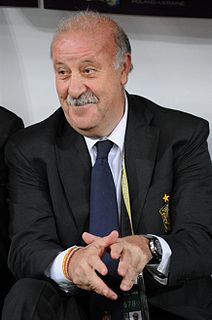A Quote by William Stanley Jevons
My principal work now lies in tracing out the exact nature and conditions of utility. It seems strange indeed that economists have not bestowed more minute attention on a subject which doubtless furnishes the true key to the problems of economics.
Related Quotes
Modern economics is sick. Economics has increasingly become an intellectual game played for its own sake and not for its practical consequences for understanding the economic world. Economists have converted the subject into a sort of social mathematics in which analytical rigour is everything and practical relevance is nothing.
Confusion conditions activity, which conditions consciousness, which conditions embodied personality, which conditions sensory experiences, which conditions impact, which conditions mood, which conditions craving, which conditions clinging, which conditions becoming, which conditions birth, which conditions aging and death.
An icon means nothing to me. I don't understand what it means to anybody actually. It seems like a word of convenience. It seems to attend to the huge success of certain kinds of movies that I did, but there's no personal utility in being an icon. I don't know what an icon does, except stand in a corner quietly accepting everyone's attention. I like to work, so there's no utility in being an icon.
It is what makes conscious of the conditions and laws of observing which applied in this manner become a theme on its own. The activity of consciousness depending on the way the work itself proceeds, becomes the subject of my attention this way and it is precisely because of this voyeuristic attitude toward the own observation and experience of the subject that the conscious analytic dimension in the work shows.
But it is doubtless true, and evident from [the] Scriptures, that the essence of all true religion lies in holy love; and that in this divine affection, and an habitual disposition to it, and that light which is the foundation of it, and those things which are the fruits of it, consists the whole of religion.
I admit that these terms and the diagrams connected with them repel some readers, and fill others with the vain imagination that they have mastered difficult economics problems, when really they have done little more than learn the language in which parts of those problems can be expressed, and the machinery by which they can be handled. When the actual conditions of particular problems have not been studied, such knowledge is little better than a derrick for sinking oil-wells erected where there are no oil-bearing strata.
It is indeed a striking proof of the essential soundness of the tradition that with which all these thousands of copies, tracing their ancestry back to so many different parts of the earth and to conditions of such diverse kinds, the variations of text are so entirely questions of detail, not of essential substance.
Questions are not happenstance thoughts nor are questions common problems of today which one picks up from hearsay and booklearning and decks out with a gesture of profundity questions grow out of confrontation with the subject matter and the subject matter is there only where eyes are, it is in this manner that questions will be posed and all the more considering that questions that have today fallen out of fashion in the great industry of problems. One stands up for nothing more than the normal running of the industry. Philosophy interprets its corruption as the resurrection of metaphysics.
I am not very interested in extraordinary angles. They can be effective on certain occasions, but I do not feel the necessity for them in my own work. Indeed, I feel the simplest approach can often be most effective. A subject placed squarely in the center of the frame, if attention is not distracted from it by fussy surroundings, has a simple dignity which makes it all the more impressive.




































